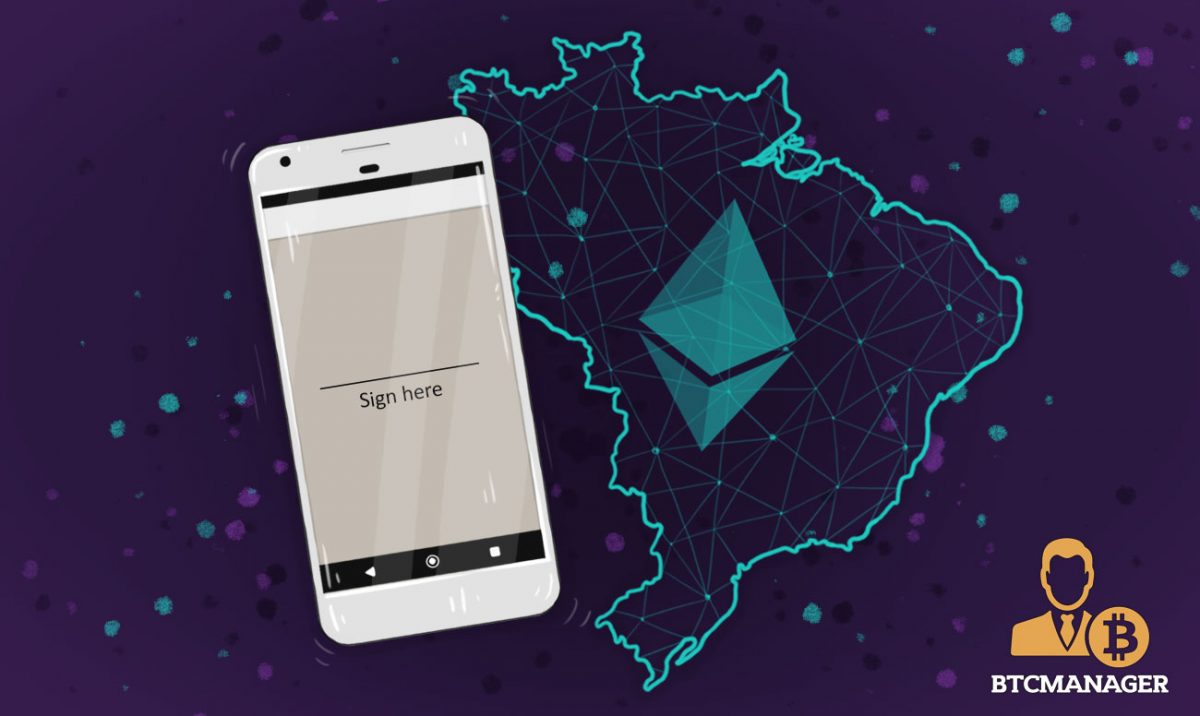Brazil Looks to Merge Political Processes with the Ethereum Blockchain

Brazil’s constitution contains a special provision to safeguard the interests of its population by allowing citizens to sign a petition on an issue they think should be brought up in Congress. The concept, dubbed “popular petitions,” has been mired in many logistical problems for quite some time now. However, that may soon change with the introduction of a project that seeks to merge the political vehicle with the Ethereum blockchain.
Defeating Corruption One Blockchain at a Time
According to the Brazilian constitution, any petition, which gathers the signatures of at least one percent of the electorate is required to be heard in Congress. Given the geographical extent of Brazil, however, it is impractical, if not impossible, for such a large number of signatures to be securely collected and verified from each voter.
As a consequence, the entire concept of popular petitions hinges on the ability of a sufficiently large group of motivated individuals to band together somehow and prove the legitimacy of their signatures.
Due to the relative infeasibility of the current system, Brazilian legislators are now exploring the use of digital platforms to collect and verify voter signatures and in this particular instance, using the Ethereum blockchain as a backbone. The project is the brainchild of Ricardo Fernandes Paixão, a legislative adviser at the Brazilian Congress and Everton Fraga, a programmer with the Ethereum Foundation.
The project involves the development of a mobile application that interfaces with the system through an application programming interface (API). Interested citizens can then register themselves on the system and then either submit a new petition or sign an existing one. The system will maintain a record of all appeals and signatures submitted.
Every day, the log containing a list of all petitions and signatures will be cryptographically hashed and attached to an Ethereum transaction. Since every operation on the Ethereum network is written to the cryptocurrency’s blockchain, the log will be permanently etched on it as well.
Copies of the blockchain are already distributed and decentralized, much like bitcoin’s. Given that cryptocurrency transactions are irreversible without majority consensus, the hashed data has guaranteed permanency.
Citizens of Brazil can also look up the daily hash if they are so inclined to verify that their signature was submitted for a particular petition. Furthermore, since the API will be open to third-party developers, the entire system is transparent and non-proprietary, unlike some implementations by other governments also working with the technology.
To date, in all the years since the creation of Brazil’s constitution, only four popular petitions have made it through Congress to be passed off as laws. One of the more notable ones would be the law passed in 2010 barring convicted individuals from participating in future civic elections.
For a country like Brazil that struggles with high rates of corruption, a somewhat recurring trend throughout Latin America, the implementation of a blockchain-based popular petition system may provide a solution. Not only is it secure, but it also allows a population of around 207 million to voice their concerns in a way that is both wholly trustless and transparent.













